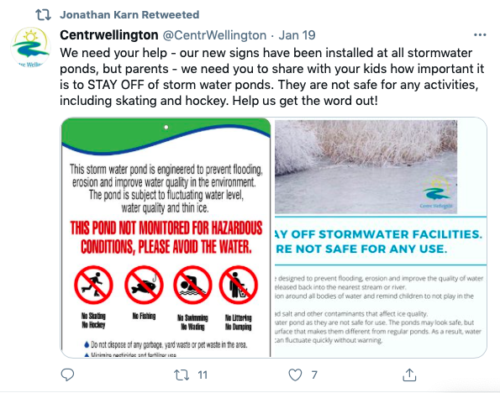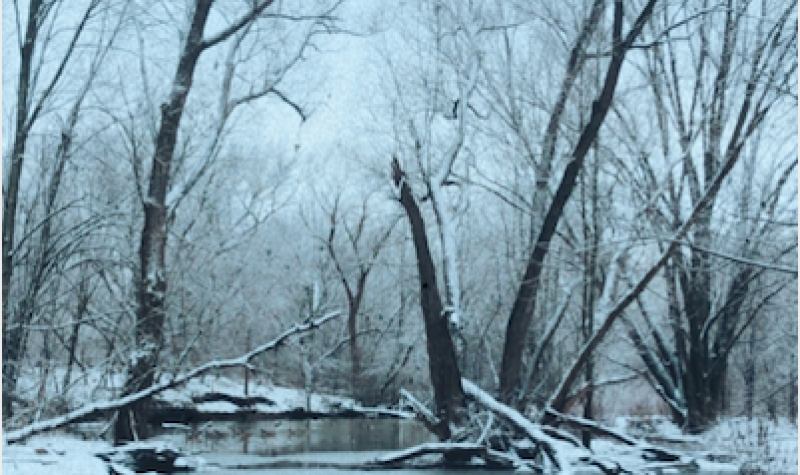The Grand River Conservation Authority (GRCA) is warning people to stay off frozen bodies of water throughout the Grand River watershed this winter.
Cam Linwood, communications coordinator with the GRCA explained why this warning has been issued.
“The lack of ability for people to get out and participate in hockey and other activities at local rinks because of the current guidelines in place, due to the COVID-19 pandemic, we are certainly seeing an increase number of people both out skating or playing hockey on some of these water bodies, as well as ice fishing, and certainly those aren’t safe places for people right now,” Linwood said.
Linwood said most natural water bodies throughout the watershed are not monitored throughout the winter.
Linwood said that after talking to their municipal partners throughout the watershed about staying off frozen bodies of water this winter, many of them, including Centre Wellington, said they’re focusing on the challenges they’re having with keeping people off stormwater management ponds.
Just recently, Centre Wellington officials put up new signs at all the stormwater management ponds throughout the township that warn people that they are not to be used.

A recent tweet from Centre Wellington Deputy Fire Chief, Jonathan Karn, warning residents to stay off stormwater ponds. Photo from: Jonathan Karn's Twitter account.
Jonathan Karn, Centre Wellington Deputy Fire Chief said the problem with stormwater management ponds is that the water underneath the ice fluctuates.
“You could have a gap between where the water is and where the ice is and then the ice could break through and you could fall through down into the water,” Karn said. “Not only that, because the water is often moving in and out of stormwater ponds the ice isn’t as thick, so, coupled with the warm weather, ice conditions aren’t generally that great on stormwater ponds.”
Karn said they have had people fall through the ice on storm water ponds, and he stressed that they aren’t located in areas where people can see them.
Karn said that the ice on storm water ponds are not monitored compared to for example, Belwood Lake, where the GRCA monitors the ice there for ice fishing.
Ice conditions change daily and a step on thin ice could have an individual plunging into cold waters.
Karn said there is a 1-10-1 rule if someone falls into cold water, where they would have about one minute to get their breathing under control within the cold water.
“You have about ten minutes of meaningful movement, meaning you can kick your legs, you can use your muscles to try to get you out, you know, about 10 minutes of meaningful movement before […] your muscles start to tense up,” Karn said.
He said from there, if an individual is able to keep their head above water they have up to one hour before they succumb to the cold-water hypothermia.
Jonathan Karn, Centre Wellington Deputy Fire Chief:


